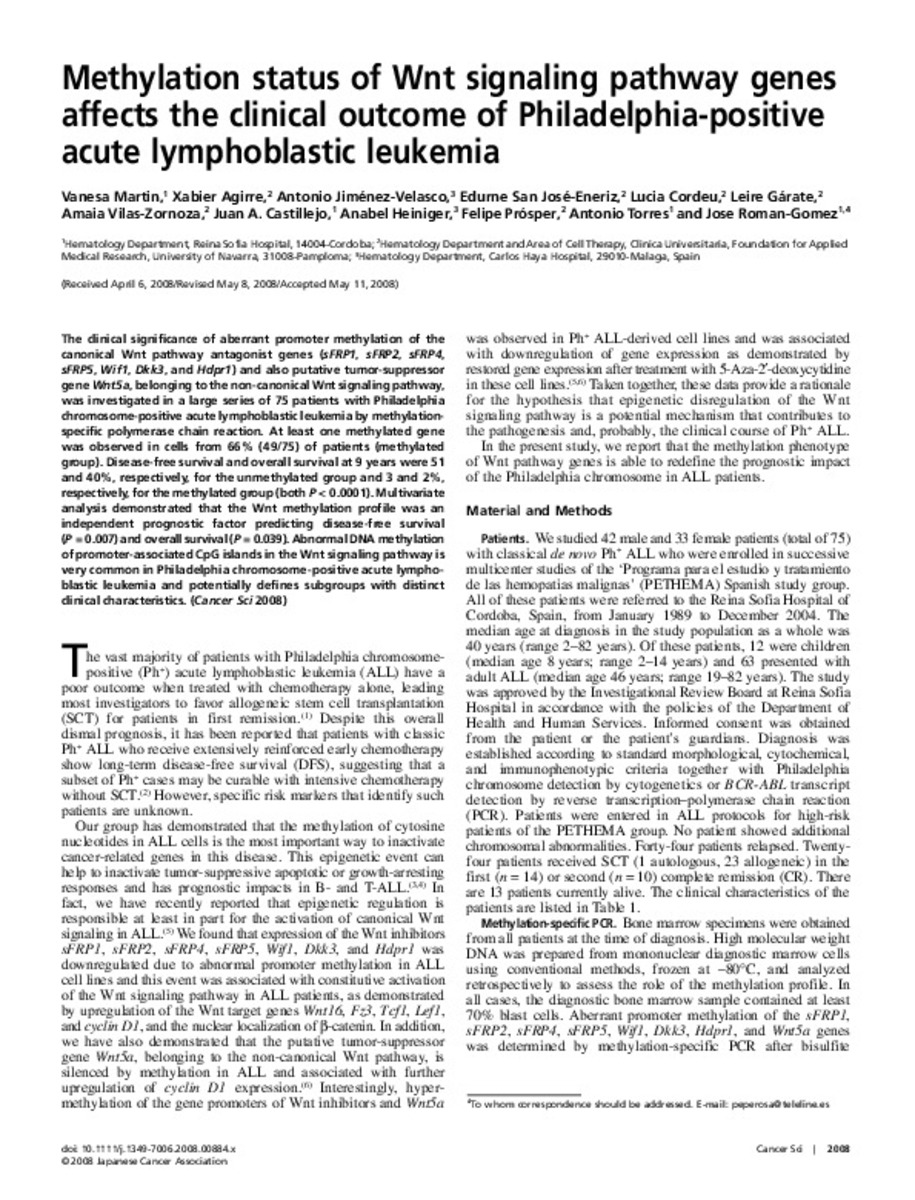Methylation status of Wnt signaling pathway genes affects the clinical outcome of Philadelphia-positive acute lymphoblastic leukemia
Palabras clave :
Materias Investigacion::Ciencias de la Salud::Oncología
Fecha de publicación :
2008
Editorial :
Wiley-Blackwell
Cita:
Martin, V., Agirre, X., Jimenez-Velasco, A., San Jose-Eneriz, E. et al. Methylation status of Wnt signaling pathway genes affects the clinical outcome of Philadelphia-positive acute lymphoblastic leukemia. Cancer Scie 2008; 99 (9): 1865–1868
Aparece en las colecciones:
Estadísticas e impacto
0 citas en

Los ítems de Dadun están protegidos por copyright, con todos los derechos reservados, a menos que se indique lo contrario.







